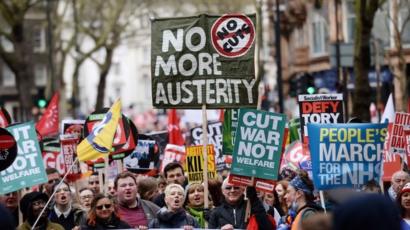Economy or austerity? Drivers of retrospective voting before and during the Great Recession

International Political Science Review (2020) – DOI: 10.1177/0192512120919138
During the Great Recession, exceptionally harsh economic conditions were often countered by austerity policies that, according to many, further worsened and protracted the negative conjuncture.
Both elements, the poor state of the economy and the contractionary manoeuvers, are supposed to reduce the electoral prospects for incumbents. In this article, we compare the relative explanatory powers of these two theories before and during the economic crisis. We demonstrate that in normal times citizens are fiscally responsible, whereas during the Great Recession, and under certain conditions, austerity policies systematically reduced the support for incumbents on top of the state of the economy. This happened when the burdens of the manoeuvers were shared by many, in more equal societies, when the country was constrained by external conditionalities and when readjustments were mostly based on tax increases.



